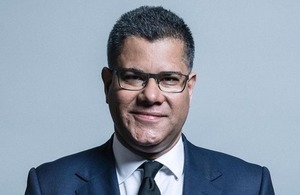The Independent 19 August 2020 - by Denis MacShane
© Provided by The Independent
The next round of technical negotiation on a Brexit trade deal begins soon. But to reverse the famous slogan, “It’s economics, stupid”, Brexit is pure, “It’s politics, stupid.”
The year will end with a political decision principally made by Boris Johnson and him alone. Cabinet government does not exist. The Commons is irrelevant. It is what happens inside the prime minister’s head that will determine what sort of Brexit we get this year.
Here are 10 political Brexits Mr Johnson has to ponder before making his final decision.
1. Tory Brexit. The Conservatives finally won a big majority last December for the first time since 1987. All Tory MPs owe Mr Johnson their seats. Most have believed in the past 15 years’ worth of propaganda about the EU. But the Tory party is rooted in English capitalism, farming, commerce and the City. As long as Johnson delivers an end to British EU Treaty membership, how many Tory MPs will want the full-Monty Brexit demanded by the septuagenarian generation of Tory anti-Europeans like John Redwood, Bill Cash and David Davis? If Johnson says what he brings home is a good Brexit, will Tory MPs rise in revolt?
2. Labour Brexit. The policy of Sir Keir Starmer is to, “say no Brexit, see no Brexit, hear no Brexit”. Labour hopes a hard Brexit, or WTO Brexit will lead to massive queues at Dover or Calais as 10,000 lorries arriving each day with fresh food and most of what Britain imports queue for checks, leading to negative images on TV, shortages of goods or medicines, and giving the impression Brexit equals chaos. Will Mr Johnson offer Sir Keir Starmer this political gift of a disruptive chaotic Brexit?
3. Business Brexit. Since 2016, the CBI, other business and trade federations, or the City have kept under the duvet refusing to challenge Brexit. But as road hauliers, the National Farmers’ Union (NFU), and importers face massive new paperwork problems, and the City loses more and more business as Britain’s third country status cuts lucrative trade with 27 EU countries, will British capitalism finally speak out?
4. Scottish Brexit. Scots are furious that a southern elite English political class has denied Scots their right to be European. Does Mr Johnson want to see even bigger support for the Scottish nationalists in next May’s election to the Scottish parliament and a subsequent independence referendum that risks the end of the UK?
5. Irish Brexit. Mr Johnson has already conceded that the six British counties in the north of Ireland will have different trade rules to allow normal commerce with the Republic of Ireland. A hard Brexit will accentuate the divorce between all of Ireland and England.
6. David Frost’s Brexit. In a paper written in 2015, the UK’s chief Brexit negotiator, now Lord Frost, argued “two essential requirements for a successful negotiation” are firstly “having allies” and second “making what you want seem normal.” He also said any Brexit negotiation had to be bi-partisan. There is not much time for the prime minister to meet those requirements.
7. Joe Biden’s Brexit. 2016 saw the birth of the nationalist populist political Siamese twin: Trump-Brexit. If Biden wins the White House one half of that Siamese twin is separated from the runt Brexit. Biden is no fan of Mr Johnson or of nationalist populism. Does Mr Johnson want to bury the already anaemic special relationship?
Iain Duncan Smith says there has been enough debate on Brexit Withdrawal Agreement
8. Expat Brexit. There has been a downplaying of the huge disruption to life of up to 2 million Brits who bought in good faith a second or retirement home on the continent. Estate agents are still selling that dream of life in the sun with cheaper wine and food. In fact, it will be impossible for Brits to spend more than three months consecutively living in Europe, with very big increases in health insurance and astronomical old age care costs. Many will miserably come home to Britain and be very angry about a hard Brexit.
9. Global Brexit. Ever since Suez, Britain’s voice has been magnified and multiplied in world affairs as a leading nation shaping European-wide policy responses to different issues. We still have 40 Royal Navy ships and 41 admirals, but there will be fewer British Army soldiers than new bureaucrats hired to handle hundreds of millions of forms to be filled in to do trade with Europe as a third country.
10. Brexiternity. The hope that the European question is answered and the file closed on 1 January is a dream. Brexit, unless based on serious compromise, leaving key issues to be decided at a later stage, will continue to be a big issue in British politics and in terms of all our relations with our neighbours. Brexit is only just beginning.
These are Mr Johnson’s political Brexit options if he can find the spare time given all the other crises he has on his plate. Brexit will be about politics and requires political decisions of a high order, not technical fixes by trade negotiators.
Denis MacShane is a former minister of Europe. His latest book is Brexiternity. The Uncertain Fate of Britain.



















